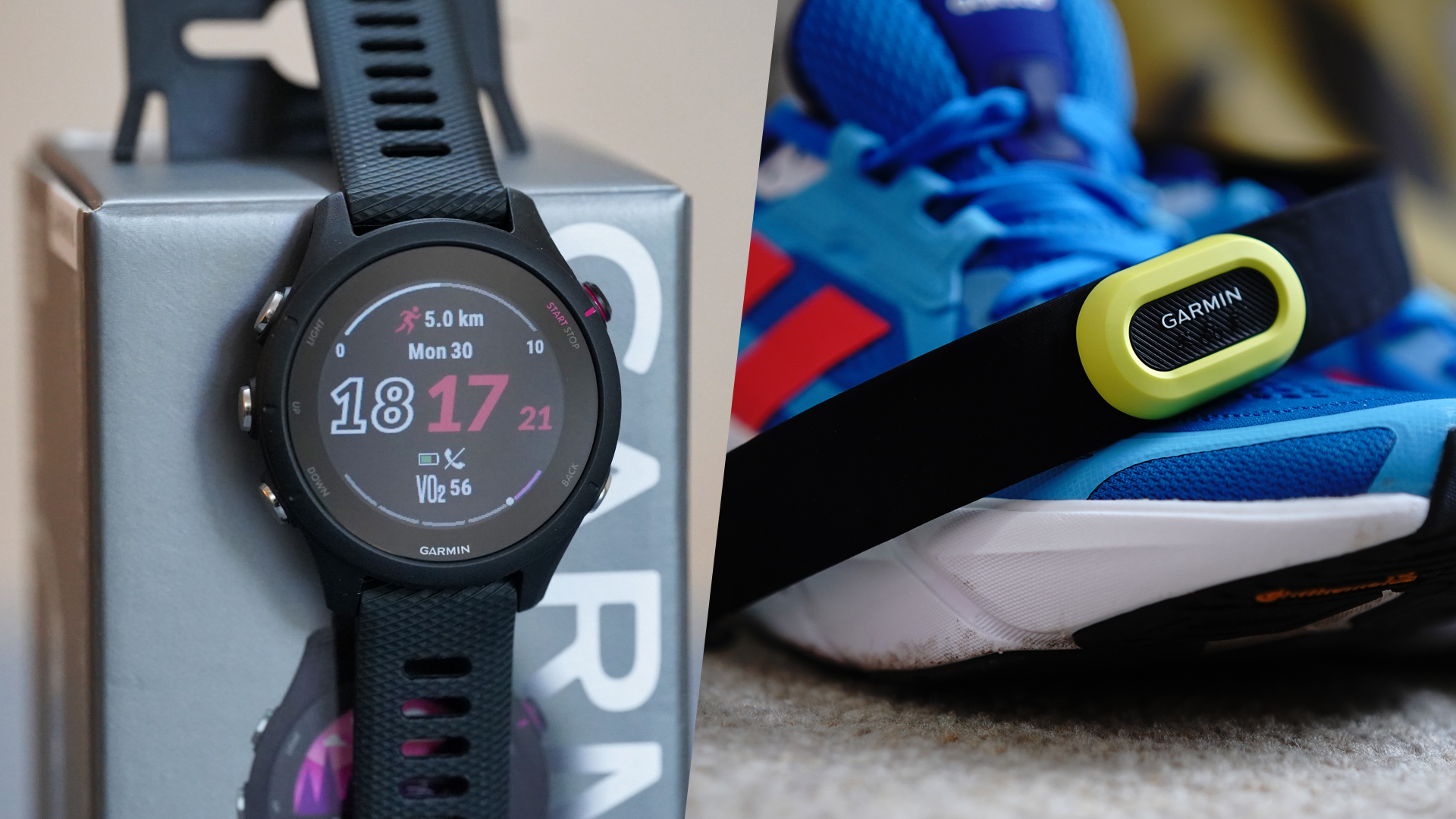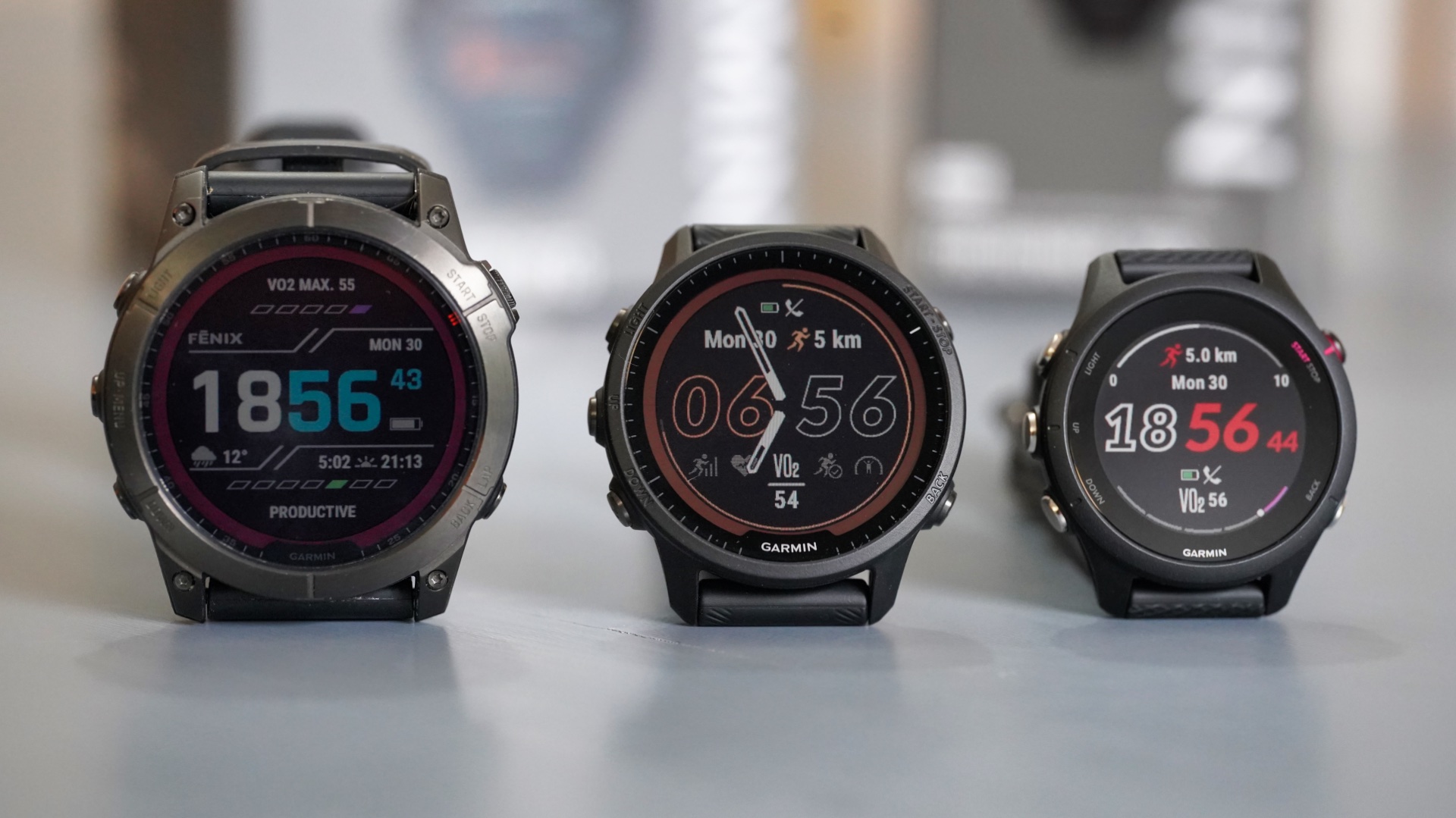I added a heart rate monitor to my Garmin Forerunner 255S and I'm never going back
Garmin Forerunner 255S + HRM-Pro = Match made in heaven


Get all the latest news, reviews, deals and buying guides on gorgeous tech, home and active products from the T3 experts
You are now subscribed
Your newsletter sign-up was successful
The new Garmin Forerunner 255S is a superb multisport watch. It's an excellent update to the Garmin Forerunner 245, not just because of the addition of the new sensors. It's the smallest Forerunner ever to exist, but despite its small size, the Forerunner 255S is jam-packed with features and sensors. But it wasn't until I added a heart rate monitor that I realised how potent this watch really is.
I'm in Garmin heaven so far in 2022. First, I've got to test the Garmin Fenix 7X and Garmin Epix Gen 2 in January, then in June, Garmin released two new Forerunners, the Forerunner 955 (plus 955 Solar) and the Forerunner 255 (and 255S). This is enough goodness to make a grown man cry!
Of the two latest releases, the Forerunner 955 packs a lot more punch than the Forerunner 255, although the latter is nothing to be frowned upon. In fact, both watches have a feature that I wish was a bit more sophisticated, yet I can't stop using: Native Running Power.
Add power to your stride with Garmin's Native Running Power
One of the many features the new Garmin wearables added to the already ridiculously expansive list of performance options is Native Running Power. Sadly, it's not perfect: you'll need a Garmin HRM-Pro or a Garmin Running Pod to unlock this feature.
Other, cheaper wearables such as the COROS Pace 2 and the Polar Pacer Pro also measure running power on the wrist, but they can do it without any additional sensors. Even the Apple Watch Series 7 can do it without any sensors, thanks to the latest WatchOS 9 update.
Anyhow, I happen to have a HRM-Pro heart rate monitor in my possession so I thought I might as well add it to the mix and see what difference it makes. And boy-oh-boy, did it blow my mind!

Left to right: Garmin Fenix 7S, Garmin Forerunner 955 Solar and Garmin Forerunner 255S Music
Not only do you get more data on how you run – vertical oscillation, ground contact time, stride length and vertical ratio – but now you can also see running power right on the watch. I know I shouldn't be surprised that a product does what it says on the box, but all this data blows my mind nevertheless.
Get all the latest news, reviews, deals and buying guides on gorgeous tech, home and active products from the T3 experts
Okay, so why is this a big deal, especially if other watches can measure running power without external sensors? Well, you have to factor in the size of the Garmin Forerunner 255S – it's tiny. Regardless of its size, the watch has multi-band GPS, the latest heart rate sensor, measures sleep/stress/HRV and running power.
You no longer have to compromise on features if you have a small wrist. You can have a full-fledged triathlon watch that's the size of a kid's watch. The Garmin Forerunner 255S breaks down the last barriers between people with small wrists and top-tier performance wearables.
Sure, the Forerunner 955 will always be the best Garmin watch for the discerning triathlete, but the 255S isn't far behind. Speaking of triathlons: the fact that the Forerunner 255S has full triathlon support is yet another reason why you should consider it as your next multisport watch.

Matt Kollat is a journalist and content creator for T3.com and T3 Magazine, where he works as Active Editor. His areas of expertise include wearables, drones, action cameras, fitness equipment, nutrition and outdoor gear. He joined T3 in 2019.
His work has also appeared on TechRadar and Fit&Well, and he has collaborated with creators such as Garage Gym Reviews. Matt has served as a judge for multiple industry awards, including the ESSNAwards. When he isn’t running, cycling or testing new kit, he’s usually roaming the countryside with a camera or experimenting with new audio and video gear.